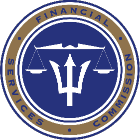
Filing a complaint with your Financial Institution
The Financial Services Commission’s process for handling complaints first requires individuals to submit their concerns in writing to their Financial Institution to seek a resolution.
- Write your financial institution, clearly setting out the facts, providing full details of your complaint or concern and include any supporting documentation. A complaint against a credit union should be written to the Chairman of the credit union’s Supervisory Committee. This is pursuant to section 1.2 of Guideline No.4 which states: “The Supervisory Committee may hear and resolve complaints from members or customers of the credit union.”
- Clearly indicate the result you are seeking and provide a reasonable time frame (14 working days) within which you expect to receive a response. Please be advised credit unions are given 45 days pursuant to section 1.6 of the established Guideline.
- Check to ensure that you have included your full name, mailing address and contact information (telephone no. & email).
- Ensure you have correctly addressed your letter to the correct personnel at your financial institution.
- Always remember to retain a copy of the correspondence for your records.
The following outlines the Commission’s expectations as regulator with respect to the manner in which complaints should be handled by regulated financial institutions. Please note this represents the minimum requirements and does not prevent financial institutions from instituting enhanced policies and procedures. These requirements supplement Guidelines Nos. 1, 3 and 4 issued to regulated entities engaging in Securities, Domestic Insurance and to Credit Unions respectively.
- A regulated entity must have in place an internal Complaints Handling Policy Manual for the proper handling of complaints.
- The procedure should include appropriate management controls.
- Entities should ensure their complaints-handling procedure is written in plain English in a manner which is easily understood.
- Ensure complaints are handled transparently, competently, impartially and consistently;
- Identify and remedy systemic or recurring problems; and
- Ensure the details and outcome of complaints are recorded and maintained appropriately.
- Complaints-handling procedures should be made widely available to clients (e.g. via company website, notices etc.).
- Regulated entities should undertake an appropriate analysis of patterns of complaints to investigate whether complaints are isolated or a widespread issue.
- Entities should inform individuals wishing to make a complaint about their internal complaints procedure and should refer persons to the assigned complaints person.
- The assigned person should record the complaint, requesting relevant details and documentation.
- The complainant should receive an acknowledgement of his/her complaint within five (5) days of receipt.
- A complaint should be settled within a reasonable timeframe. Entities should provide a written explanation to the complainant when unable to provide a final response in a timely manner.
Entities should maintain a report of complaints received, which should be made available to the Commission upon request (Pursuant to section 1.4 in Guideline No.4 Credit Unions shall submit a copy of such records to its Board of Directors on a regular basis and annually to the Commission) The report should include the following information:
- The total number of complaints received within a period of time;
- A breakdown by type of complaints received;
- The number of complaints settled and the type of settlement reached;
- The number of complaints not resolved.
Complainants are required to first lodge their complaints in writing with the respective financial institution(s). Thereafter, complaints lodged with the Commission should be addressed to the Chief Executive Officer, to the attention of the Complaints Coordinator.
In your correspondence to the Commission:
- Clearly indicate your name, address and contact information (i.e. telephone and email).
- Indicate the date and to whom your correspondence to the financial institution was addressed.
- Providing full details of your complaint or concern and include any copies of supporting documentation.
- Attach copies of both your previous correspondence and the response from the financial institution.
The Commission will not attempt to resolve a complaint which:
- Has not been submitted in writing.
- Has been dealt with in court or an alternative dispute resolution process.
- Falls under the regulatory authority of another organization.
- Has already been dealt with by the Commission.
- Is against a non-registered financial institution.
In circumstances where a regulated financial institution appears not have observed good conduct of business or appears to have breached regulatory laws, the Commission will seek to determine whether that financial institution has acted in accordance with the relevant legislation under which it operates namely the:
- Financial Services Commission Act, 2010-21
- Insurance Act Cap.310
- Securities Act Cap.318A
- Co-operatives Societies Act Cap.378A



